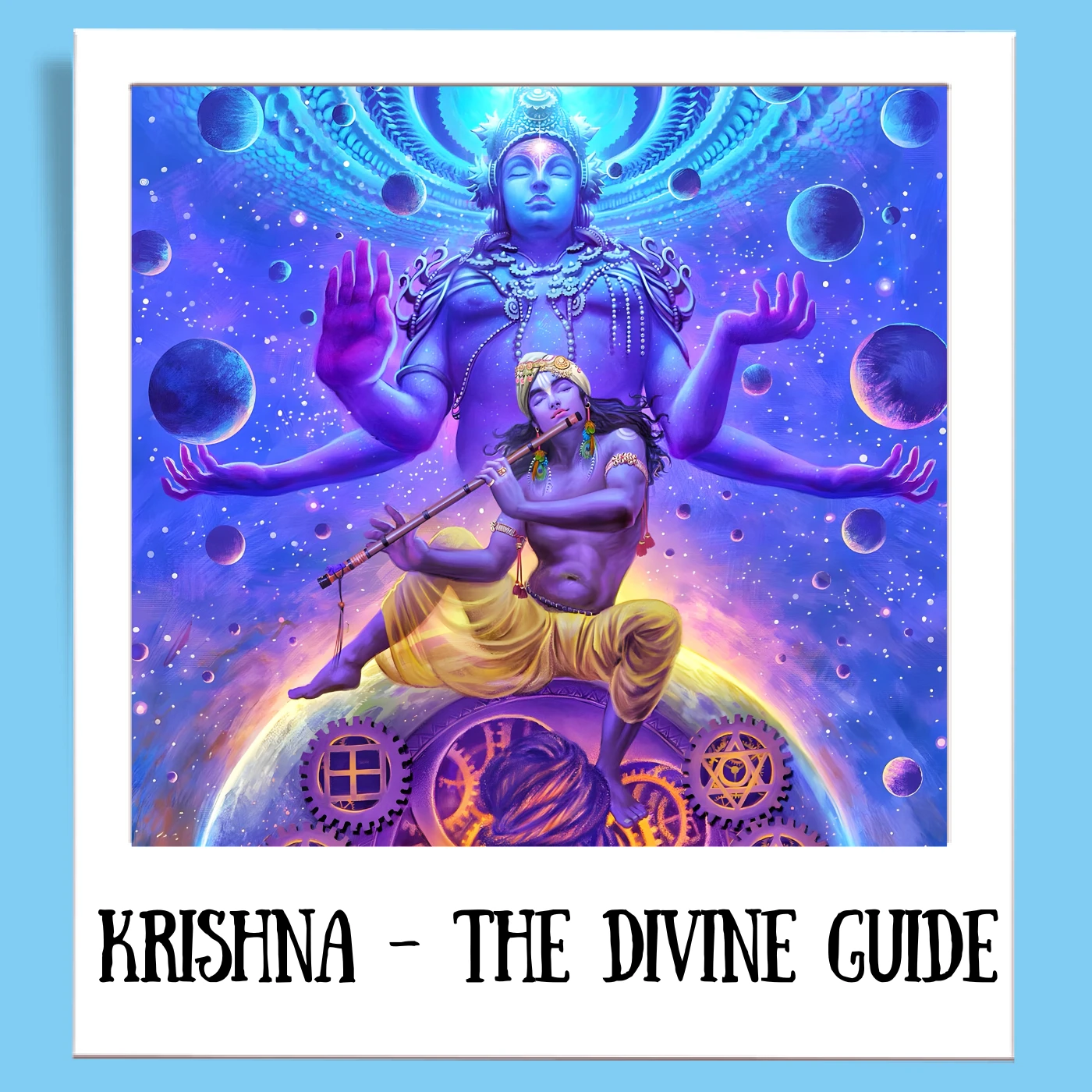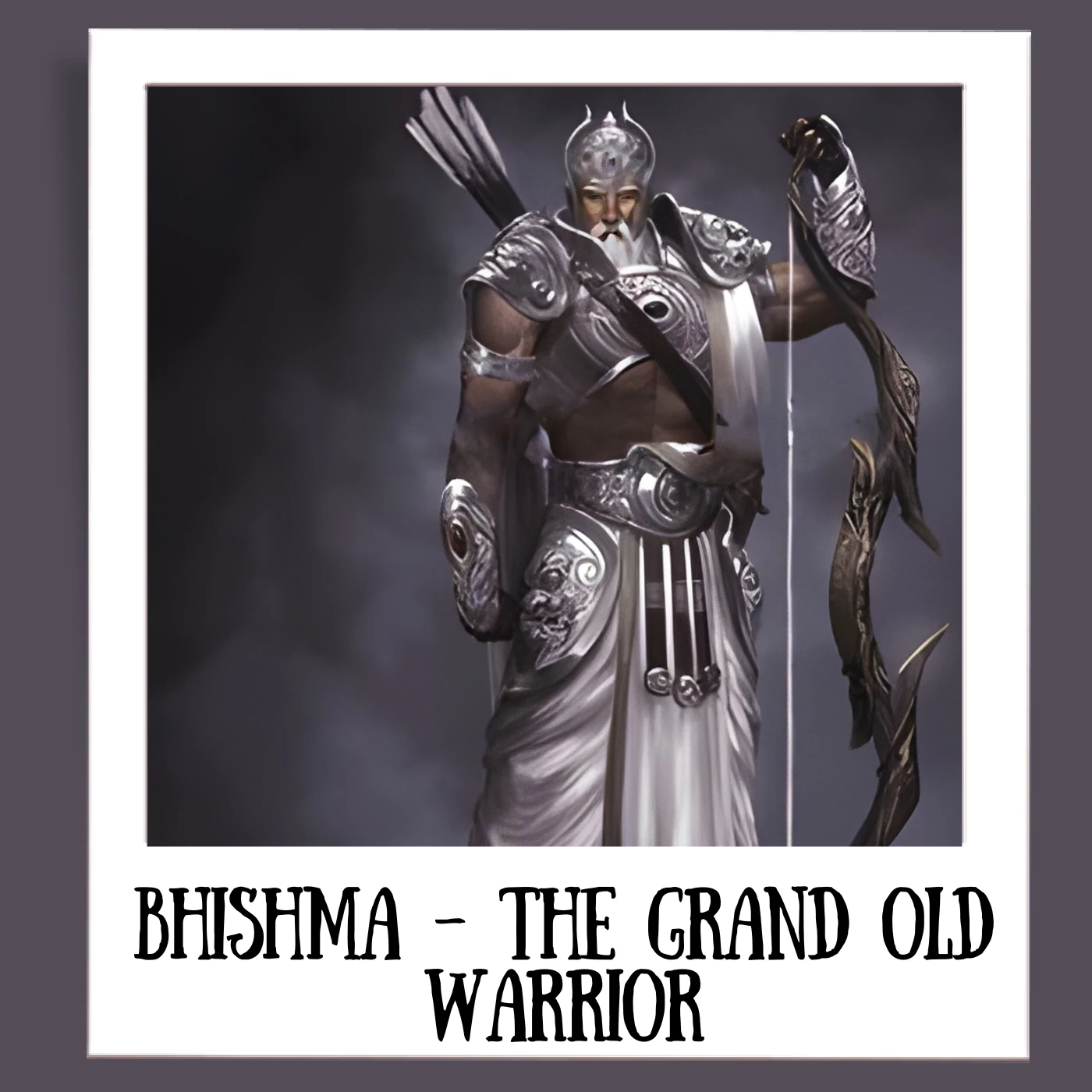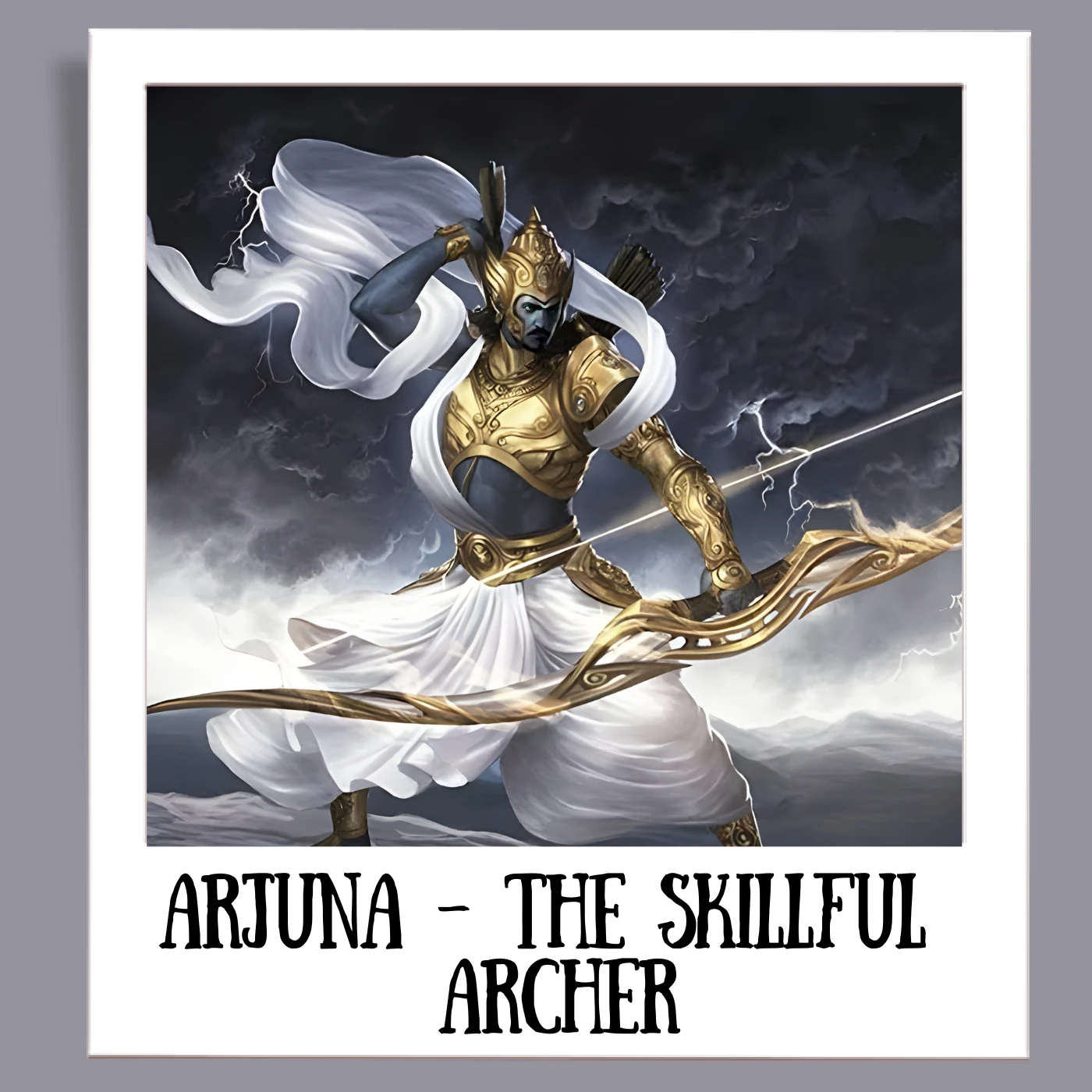The Mahabharata, a timeless epic, unfolds a saga of warriors whose valor shapes its narrative. Join us on a journey through the lives and legacies of the top 5 most powerful warriors in this ancient tale.
The Mahabharata, one of the ancient Indian epics, is a sprawling narrative that encompasses profound philosophy, intricate politics, and legendary battles.
Central to this epic is the concept of dharma (righteousness) and the colossal war fought at Kurukshetra.
Are You In Hurry? Then Check Out Below!
At the heart of this epic are formidable warriors, whose valor and prowess on the battlefield are etched into the annals of Hindu mythology.

Next Picks For You
I. Introduction
In this article, we delve into the epic’s tapestry to explore the top five most powerful warriors in the Mahabharata. These individuals not only played pivotal roles in shaping the course of the great war but also left an indelible mark on the moral and spiritual fabric of the narrative.
Their stories, skills, and destinies serve as timeless symbols of strength, courage, and the eternal struggle between good and evil. Join us on a journey through the legendary pages of the Mahabharata to encounter the mightiest warriors who stood at the forefront of this ancient saga.
A. Brief overview of the Mahabharata
The Mahabharata primarily revolves around the great Kurukshetra War between two branches of the Kuru dynasty—the Pandavas and the Kauravas. The epic is not merely a chronicle of the war but encompasses a vast array of stories, teachings, and philosophical discourses.
Among its most celebrated sections is the Bhagavad Gita, a sacred dialogue between Lord Krishna and the Pandava prince Arjuna, which delves into profound spiritual and ethical concepts.
B. Importance of warriors in the Mahabharata epic
The Mahabharata places a significant emphasis on the role of warriors, portraying them as central figures in the unfolding of the epic’s narrative. The epic features a multitude of powerful and skilled warriors who play pivotal roles in shaping the course of events.
The central conflict between the Pandavas and the Kauravas culminates in the great Kurukshetra War, where these warriors showcase their martial prowess and valor.
The Mahabharata explores not only the physical prowess of these warriors but also delves into their character, values, and dilemmas. Through their stories, the epic offers profound insights into concepts such as duty (dharma), righteousness, and the consequences of one’s actions.
In essence, the Mahabharata’s portrayal of warriors goes beyond mere martial skill, presenting them as multidimensional characters whose choices and actions shape the destiny of the epic and, by extension, provide valuable lessons and reflections on life, morality, and spirituality.
These legendary figures have captured the imaginations of generations with their awe-inspiring feats and valor on the battlefield. So let’s see the Top 5 Powerful Warriors in Mahabharata.
II. Top 5 Most Powerful Warriors in Mahabharata
Unveil the Epic Battles! Discover the Top 5 Most Powerful Warriors in Mahabharata – Legends, Strength, and Honor Clash! Dive into Mythical Might Now!
1. Krishna – The Divine Guide
In the epic tale of the Mahabharata, there is one character who stands out as the embodiment of divinity, wisdom, and guidance – Krishna, the supreme deity and charioteer.
With his divine presence and profound teachings, Krishna played a transformative role in shaping the course of events and guiding the warriors towards righteousness. Let’s delve deeper into the life and significance of this divine guide.

1.1 Introduce Krishna, his divine lineage, and his role as a pivotal character
Krishna, the eighth avatar of Lord Vishnu, was born to Queen Devaki and King Vasudeva. His birth was marked by extraordinary events, and he was destined to bring about a significant transformation in the world.
Krishna’s role in the Mahabharata was not merely that of a character but that of a divine guide, leading the warriors towards their dharma (duty) and the path of righteousness.
Krishna’s presence and teachings had a profound impact on the outcome of the Mahabharata, making him a central figure in the epic.
1.2 Discuss Krishna’s divine qualities and his role as a charioteer
Krishna’s divinity was evident through his various manifestations and divine qualities. He possessed unparalleled wisdom, cosmic knowledge, and an unwavering connection to the divine realm. Krishna’s divine nature allowed him to foresee events and guide the warriors with divine insight.
One of Krishna’s notable roles in the epic was that of a charioteer. He served as the charioteer of Arjuna, imparting invaluable guidance during the Kurukshetra War. This role symbolized his selfless support and his willingness to guide humanity through the trials and tribulations of life.
1.3 Highlight Krishna’s teachings in the Bhagavad Gita and their impact
One of the most significant contributions of Krishna in the Mahabharata is his teachings in “The Bhagavad Gita“. Amidst the battlefield of Kurukshetra, Krishna delivered a profound discourse to Arjuna, enlightening him about his duties, ethics, and the true nature of life and death.
Krishna’s teachings in the Bhagavad Gita encompassed profound philosophical insights, practical wisdom, and spiritual guidance. They explored concepts such as dharma, selflessness, detachment, and the pursuit of spiritual enlightenment.
The teachings of the Bhagavad Gita continue to inspire individuals to lead a purposeful and righteous life.
1.4 Discuss Krishna’s pivotal interventions and his divine acts
Krishna’s divine presence was not limited to his teachings but also extended to his numerous interventions and divine acts.
From preventing the destruction of Draupadi’s honor to revealing his cosmic form (Vishvarupa) to Arjuna, Krishna’s divine interventions showcased his omnipotence and his commitment to upholding righteousness.
Krishna’s divine acts were not merely displays of power but were driven by a deep sense of justice and compassion. They served as reminders of the divine order and the consequences of one’s actions.
Krishna, the divine guide, left an indelible mark on the Mahabharata. His teachings, divine presence, and profound wisdom provided the warriors with guidance, clarity, and strength. Krishna’s legacy continues to inspire millions, reminding them of the importance of spiritual enlightenment, righteous action, and the pursuit of truth.
2. Bhishma – The Grand Old Warrior
In the epic of Mahabharata, one name that stands out prominently among the warriors is that of Bhishma. Known as Bhishma Pitamah, he was a towering figure and a central character in the tale of honor, duty, and sacrifice. Let’s delve deeper into the remarkable life and valor of this grand old warrior.

2.1 Introduce Bhishma, his background, and his role in the Mahabharata
Bhishma was born as Devavrata, the eighth son of King Shantanu and the river goddess Ganga. He posses
sed extraordinary qualities from birth, which earned him the name Bhishma, meaning “terrible” or “one with a terrible oath.” He was known for his unmatched prowess and indomitable spirit.
Bhishma played a pivotal role in the Mahabharata, serving as the linchpin between the Pandavas and the Kauravas. As the heir to the throne of Hastinapura, his personal vows prevented him from assuming kingship, and he devoted his life to the welfare of the kingdom.
2.2 Highlight Bhishma’s exceptional skills, including his mastery of weapons
Bhishma was an extraordinary warrior, renowned for his mastery over various weapons and combat skills. He was a formidable archer, proficient in the use of different types of bows and arrows. His accuracy and precision in archery were unmatched, making him a force to be reckoned with on the battlefield.
Apart from archery, Bhishma excelled in swordsmanship, spear fighting, and chariot warfare. He displayed an unmatched dexterity in wielding weapons and had an in-depth knowledge of military strategies. Bhishma’s expertise in warfare made him an invincible warrior.
2.3 Discuss key battles and significant contributions made by Bhishma
Bhishma participated in numerous battles throughout his life, leaving an indelible mark on the pages of history. His most notable contribution was during the Kurukshetra War, where he fought on the side of the Kauravas against the Pandavas.
Bhishma’s military acumen and combat skills were instrumental in shaping the course of the war. He led the Kaurava army with great valor and tactical brilliance, causing significant losses to the Pandava forces. Bhishma’s unwavering determination and strategic maneuvers made him a formidable adversary.
Despite his allegiance to the Kauravas, Bhishma displayed an unwavering sense of righteousness and honor. He never compromised his principles and always stood up for what he believed was just. This earned him respect from both friends and foes alike.
2.4 Emphasize Bhishma’s unwavering loyalty and code of honor
One of the most remarkable aspects of Bhishma’s character was his unwavering loyalty. He was devoted to his family and kingdom, always putting their interests above his own. Bhishma’s commitment to his father’s happiness was evident when he made the difficult choice to renounce marriage and remain celibate to fulfill his father’s wish.
Bhishma’s adherence to a strict code of honor earned him the admiration of all who knew him. He always followed the path of righteousness, regardless of personal cost. His sense of duty and sacrifice made him a symbol of selflessness and integrity.
Throughout his life, Bhishma demonstrated unwavering loyalty, valor, and an unbreakable spirit. His legacy as the grand old warrior in the Mahabharata continues to inspire generations, teaching us the importance of honor and sacrifice.
3. Karna – The Unfortunate Hero
In the epic saga of the Mahabharata, there is one character who stands out as a symbol of resilience and tragedy – Karna, the mighty warrior with a poignant destiny.
Despite his extraordinary skills and valor, Karna’s life was plagued by misfortunes and complexities. Let’s delve deeper into the remarkable life and compelling story of this unfortunate hero.

3.1 Introduce Karna, his background, and his complex character
Karna was born to Kunti, the mother of the Pandavas, before her marriage to King Pandu. Sun god Surya fathered him, making Karna the half-brother of the Pandavas. However, due to circumstances, he was raised by a charioteer family and was unaware of his royal lineage until much later.
Karna’s complex character was shaped by a sense of abandonment, deep-rooted loyalty, and a constant struggle for acceptance. Despite his unfortunate circumstances, he possessed exceptional qualities of strength, valor, and unwavering determination.
3.2 Discuss Karna’s exceptional strength and his proficiency in wielding divine weapons
Karna was an embodiment of physical prowess and martial skills. His strength and valor were renowned throughout the kingdom. He displayed exceptional proficiency in wielding various weapons, including the bow and arrow. Karna’s archery skills were unmatched, and his precision on the battlefield was feared by his opponents.
Additionally, Karna possessed divine weapons, gifted to him by Lord Indra, including the powerful celestial weapon called the Vasavi Shakti. His mastery of these divine weapons added to his already formidable presence on the battlefield.
3.3 Explore Karna’s loyalty, friendship, and his tragic circumstances
One of the defining aspects of Karna’s character was his unwavering loyalty. Despite knowing his true lineage, he remained loyal to Duryodhana, the leader of the Kauravas. Karna’s steadfast friendship with Duryodhana was marked by mutual admiration, respect, and support.
Karna’s life was rife with tragic circumstances. He faced constant discrimination and rejection due to his lower birth, which left him yearning for recognition and acceptance. His allegiance to the Kauravas, even though he was technically a Pandava, created internal conflicts and ethical dilemmas.
3.4 Highlight Karna’s remarkable performances in battles and his confrontations with Arjuna
Karna’s valor and warrior skills were on full display during the Kurukshetra War. He engaged in fierce battles with prominent warriors, displaying his indomitable spirit and combat prowess. Karna’s duels with Arjuna, his half-brother, were particularly epic and filled with intensity.
The encounters between Karna and Arjuna showcased two exceptional warriors vying for supremacy. Karna’s unwavering determination and formidable skills challenged Arjuna’s position as the greatest archer. Their confrontations were marked by respect, rivalry, and a clash of ideologies.
Karna’s life, marked by unfortunate circumstances and internal conflicts, paints a poignant picture of a tragic hero. Despite his extraordinary skills and valor, Karna’s fate was marred by complex relationships and a sense of unfulfilled destiny.
His story serves as a reminder of the complexities of human nature and the unpredictable twists of fate in the epic tapestry of the Mahabharata.
4. Arjuna – The Skillful Archer
In the vast tapestry of the Mahabharata, there is one warrior whose name echoes through the ages – Arjuna, the master archer.
Renowned for his extraordinary skills and unwavering determination, Arjuna’s prowess with the bow and arrow is legendary. Let’s delve deeper into the remarkable life and exceptional archery skills of this remarkable warrior.

4.1 Introduce Arjuna, his lineage, and his significance as the protagonist
Arjuna, the third Pandava prince, belonged to the illustrious Kuru dynasty. He was the son of King Pandu and the deity Kunti, making him a half-brother to the Kauravas. Arjuna’s significance in the Mahabharata cannot be overstated, as he was not only a central character but also the hero whose actions shaped the outcome of the war.
Born with divine blessings, Arjuna possessed exceptional qualities from an early age. His training under the tutelage of Dronacharya, the renowned warrior and teacher, further honed his skills and molded him into a formidable warrior.
4.2 Discuss Arjuna’s exceptional archery skills and his mastery of celestial weapons
Arjuna’s archery skills were unparalleled, and he was considered the greatest archer of his time. With his bow, named Gandiva, in hand, he could unleash a volley of arrows with incredible precision and speed. His aim was so impeccable that it seemed like he could strike even the tiniest of targets.
What set Arjuna apart were not just his physical prowess and accuracy but also his knowledge and mastery of celestial weapons. He possessed divine astras (weapons) bestowed upon him by deities like Lord Shiva, Lord Indra and others. Arjuna’s skill in wielding these celestial weapons gave him a distinct advantage on the battlefield.
4.3 Highlight Arjuna’s pivotal role in the Kurukshetra War and his interactions with Krishna
The Kurukshetra War was a defining moment in Arjuna’s life. As a key protagonist, he played a pivotal role in shaping the outcome of the war. However, on the battlefield, Arjuna faced a moral dilemma when he saw his own relatives and revered elders fighting on the opposite side.
It was during this critical moment that Arjuna turned to his charioteer and dear friend, Lord Krishna, for guidance. Through the timeless conversation of the Bhagavad Gita, Krishna imparted profound wisdom and enlightened Arjuna about his duties, righteousness, and the nature of life and death. This discourse strengthened Arjuna’s resolve and determination.
4.4 Mention notable achievements and key moments of valor in Arjuna’s life
Arjuna’s life was adorned with numerous achievements and instances of valor. His exploits in the Mahabharata are etched in the annals of history. Notably, Arjuna won the hand of Draupadi, the princess of Panchala, by accomplishing a seemingly impossible task of piercing the eye of a fish while looking only at its reflection.
Throughout the epic, Arjuna showcased his valor in various battles, both on and off the battlefield. His notable confrontations with formidable foes like Karna, Bhishma, and Dronacharya highlighted his exceptional combat skills, strategic thinking, and unwavering bravery.
Arjuna’s exceptional archery skills, mastery of celestial weapons, and his pivotal role in the Kurukshetra War make him a timeless hero of the Mahabharata.
5. Dronacharya – The Supreme Teacher
In the epic of Mahabharata, there is one figure who stands out as the epitome of wisdom, skill, and mentorship – Dronacharya, the revered teacher.
With his profound knowledge, exceptional skills, and unparalleled guidance, Dronacharya played a pivotal role in shaping the destiny of the warriors in the Mahabharata. Let’s delve deeper into the life and legacy of this supreme teacher.

5.1 Introduce Dronacharya, his lineage, and his role as a revered teacher
Dronacharya hailed from the lineage of sage Bharadwaja and was considered a prodigious warrior from his early days. However, he chose the path of imparting knowledge and became a highly respected teacher in the art of warfare.
His expertise and reputation earned him the title of “Dronacharya,” meaning “the one who was born with a pot of knowledge.”
As the royal preceptor of the Kuru dynasty, Dronacharya played a vital role in shaping the skills and characters of the young princes, including the Pandavas and the Kauravas.
5.2 Discuss Dronacharya’s exceptional skills in warfare and his expertise in various weapons
Dronacharya’s prowess in warfare was unmatched. He possessed a deep understanding of military strategies, tactics, and combat techniques. His knowledge extended to various weapons, including the bow and arrow, swordsmanship, chariot warfare, and more.
Dronacharya’s mastery over these skills made him an invaluable teacher. He was not only adept at imparting knowledge but also had the ability to bring out the best in his students, nurturing their strengths and addressing their weaknesses.
5.3 Highlight Dronacharya’s contributions as a mentor to the Pandavas and Kauravas
Dronacharya’s role as a mentor to the young princes was pivotal in the Mahabharata. He provided them with comprehensive training in all aspects of warfare, instilling discipline, honor, and a deep sense of duty.
Dronacharya imparted not only the technical skills but also the ethical and moral values that were crucial for a warrior’s journey.
Under Dronacharya’s tutelage, the Pandavas and the Kauravas flourished, developing into formidable warriors. He recognized and nurtured the unique talents of each student, guiding them towards their full potential.
5.4 Mention key instances that showcase Dronacharya’s wisdom and tactical brilliance
Throughout the Mahabharata, Dronacharya’s wisdom and tactical brilliance were evident in several instances. One such instance was the Ekalavya episode, where Dronacharya demonstrated his commitment to upholding righteousness.
He rejected Ekalavya’s request to become his disciple, as Ekalavya had already pledged his loyalty to another teacher, showcasing Dronacharya’s adherence to principles.
Another remarkable incident was during the Kurukshetra War, where Dronacharya devised ingenious strategies to challenge the Pandavas. His formation of the Chakravyuha battle formation was a testament to his tactical brilliance and showcased his ability to create complex strategies.
Dronacharya’s immense knowledge, exceptional skills, and role as a mentor had a profound impact on the warriors of the Mahabharata. His teachings, guidance, and unwavering dedication to his students played a significant part in shaping their destinies.
Dronacharya’s legacy as the supreme teacher continues to inspire generations, emphasizing the importance of mentorship, knowledge, and ethical leadership.
III. Conclusion
So in this article “Top 5 Most Powerful Warriors in Mahabharata” conclusion is The Mahabharata, with its rich tapestry of characters and epic battles, presents us with a world where warriors of extraordinary power and prowess shape the destiny of kingdoms.
From the grand old warrior Bhishma to the skillful archer Arjuna, the unfortunate hero Karna, the supreme teacher Dronacharya, and the divine guide Krishna, each character brings a unique dimension to the tale.

5 Most Powerful Warriors in Mahabharata
- Krishna – The Divine Guide
- Bhishma – The Grand Old Warrior
- Karna – The Unfortunate Hero
- Arjuna – The Skillful Archer
- Dronacharya – The Supreme Teacher
These warriors, each with their strengths and flaws, are immortalized in the Mahabharata for their exceptional qualities and indelible impact. They serve as timeless symbols of valor, wisdom, and the eternal struggle between good and evil.
The Mahabharata not only captivates us with its riveting battles and intricate plotlines but also imparts invaluable lessons that resonate with humanity even today.
It teaches us about the complexities of human nature, the consequences of our choices, and the importance of upholding righteousness in the face of adversity.
As we delve into the world of the Mahabharata and explore the lives of these powerful warriors, we are reminded of the universal themes of love, loyalty, honor, and the pursuit of truth.
The lessons we glean from their stories can guide us in navigating the challenges of our own lives, encouraging us to embrace our strengths, overcome our weaknesses, and strive for the greater good.
In the end, the Mahabharata stands as a testament to the timeless power of storytelling, the enduring nature of human virtues and vices, and the profound impact that these legendary warriors have had on the fabric of our cultural and moral consciousness.
Their stories continue to inspire and enlighten, transcending time and reminding us of the eternal quest for righteousness and the triumph of good over evil.
The epic tale of Mahabharata showcases the valor and strength of numerous warriors, but the Top 5 Most Powerful Warriors stand out as true embodiments of power and skill.
Their remarkable feats and unwavering determination have left an indelible mark on the hearts and minds of readers throughout the ages.
As we delve into the rich tapestry of this ancient Indian epic, we are reminded of the timeless lessons of bravery, honor, and sacrifice that continue to resonate with us today.
IV. Frequently Asked Questions (FAQ)
What is the Mahabharata?
The Mahabharata is one of the longest epic poems in the world, an ancient Indian text that narrates the story of the Kurukshetra War and includes various philosophical and moral teachings. It is a significant part of Hindu mythology and literature.
Why are warriors crucial in the Mahabharata?
Warriors play a central role in the Mahabharata as the narrative revolves around the Kurukshetra War. The epic showcases their valor, skills, and the moral dilemmas they face, making them key characters in the story.
Who is Bhishma Pitamah?
Bhishma Pitamah, also known as Bhishma, is a revered character in the Mahabharata. He is the granduncle of both the Pandavas and Kauravas, known for his unparalleled martial skills, unwavering commitment to duty, and the vow of celibacy he undertook.
What are some notable feats of Bhishma?
Bhishma displayed extraordinary skills in archery and warfare. His vow to protect the throne of Hastinapura led to his significant role in the Kurukshetra War.
Who is Arjuna, and why is he considered a powerful warrior?
Arjuna is one of the Pandava brothers, known for his exceptional skills in archery. He played a pivotal role in the Kurukshetra War and is the central figure in the Bhagavad Gita, a conversation with Lord Krishna that explores various philosophical concepts.
How did Arjuna’s relationship with Lord Krishna impact the Mahabharata?
Arjuna’s relationship with Lord Krishna is crucial as Krishna served as his charioteer and guide during the war. The Bhagavad Gita, a conversation between Arjuna and Krishna, delves into profound philosophical discussions, shaping Arjuna’s perspective and actions.
Who is Karna, and what makes him a powerful warrior?
Karna is a significant character in the Mahabharata, known for his extraordinary skills in archery and loyalty. Despite facing numerous challenges, including his uncertain lineage, Karna remains a formidable warrior and a key participant in the Kurukshetra War.
Who is Dronacharya, and what role does he play in the Mahabharata?
Dronacharya is a revered teacher and mentor in the Mahabharata, instructing both the Pandavas and Kauravas in the art of warfare. His mastery in military strategy and tragic end contribute to the complexity of the epic.
How does Lord Krishna contribute to the Mahabharata as a powerful figure?
Lord Krishna is a central figure in the Mahabharata, known for his divine nature, guidance, and strategic role in the Kurukshetra War. His teachings, especially in the Bhagavad Gita, hold profound philosophical significance.
What lessons can be derived from the stories of these powerful warriors?
The stories of these warriors in the Mahabharata offer lessons on duty, loyalty, moral dilemmas, and the complexities of human nature. The epic provides insights into the consequences of choices and the enduring impact of virtue and vice.







